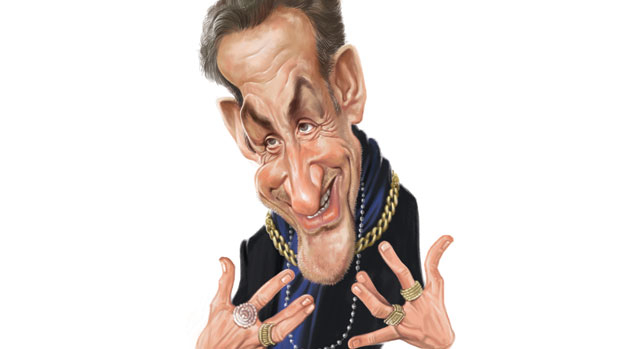
Who is Nicolas Sarkozy?
Nicolas Paul Stéphane Sarkozy de Nagy-Bocsa was France’s 23rd president, from May 2007 until his defeat in the 2012 election campaign.
Previously, he was leader of his centre-right UMP party and also held several top-level ministerial positions, including interior minister - most recently in the government of Dominique de Villepin.
Born to a wealthy family, Mr Sarkozy grew up first in Paris and then the moneyed Neuilly-sur-Seine on the outskirts of Paris. He obtained mediocre results at school and failed to graduate from the prestigious Institut d’Etudes Politiques de Paris, or Sciences Po - reportedly for poor mastery of English.
Why is he so controversial?
Sarkozy barged his way into the Elysée Palace, famously calling for a “rupture” — a full makeover of France’s economic and social institutions.
He moved to implement structural reform on several fronts simultaneously, tackling education, industry and the labour market. Among other things, he overcame widespread strikes to force through a hike in the age of retirement from 60 to 62.
The Thomas More Institute, an independent Paris-based think-tank, recorded some 1,300 proposals and initiatives taken during his presidency, of which it says more than half were at least partly realised.
Yet his US-style dynamism and obvious love of the spotlight grated with the traditional French politics. Voters hit by the fallout from the 2008 recession also increasingly associated him with the country’s wealthiest classes, helping to earn him the nickname “President Bling-Bling”.
He horrified many onlookers as he habitually jogged up the steps of the presidential palace dressed in his track suit after his morning run. His glitzy image only got glitzier after he married Carla Bruni, the model-turned-singer. The wedding took place at the presidential palace just months after taking office.
Ultimately, the recession undid his vision for France. He pledged to cut employment to 5 per cent but ended his term in office with unemployment at double that. The trade deficit doubled during his presidency and the public debt rose to close to 90 per cent of gross domestic product.
Why is he coming back?
The answer depends on who you ask. Many of his adversaries in French politics would say that he is coming back because his ego will not allow him to stay out of the public eye indefinitely.
Ask Sarkozy, however, and the answer is that he is fulfilling his duty to France as the country’s political class appears incapable of kick-starting growth and putting the economy on an upward path.
Who still supports him?
The short answer is the country’s centre-right. An opinion poll published in July by Ifop showed that 60 per cent of UMP supporters wanted Mr Sarkozy to make a bid for the 2017 presidency. Moreover, support for the former president has risen 10 percentage points since the beginning of May.
But he will also fancy his chances of winning back voters who in recent months have defected to Marine Le Pen’s far-right National Front - in many cases in frustration at the lack of leadership in the UMP.
What are his chances?
With his own party reeling from the 2012 defeat and, since then, the victim of political infighting, Mr Sarkozy’s immediate goal to lead his party once again - the UMP holds elections in November - would seem little short of automatic.
Yet he still faces competition from Alain Juppé and Francois Fillon, two former prime ministers with plenty of experience, before he can position himself as the party’s official candidate for 2017.
Sarkozy also identifies an opportunity at the national level, in particular given that Francois Hollande, the Socialist-Party president, has had his back against the wall for most of his presidency.
Indeed, with France’s president now struggling with a popularity of a record-low 13 per cent, Mr Sarkozy must feel that he has every chance of making a successful comeback. Even the popularity of Manuel Valls, Mr Hollande’s hitherto well-regarded prime minister, has plummeted in recent months.
One critical question is how Sarkozy’s judicial wrangles — he has always denied any wrongdoing — will play out among voters. The former president notched up one important victory late last year when a court dropped an investigation into whether he had taken advantage of the impaired mental health of Liliane Bettencourt, France’s richest woman, to help finance his 2007 electoral campaign.
But there is still a separate investigation into allegations that he illegally used funding from late Libyan leader Muammar Gaddafi for the same campaign. More recently, taps on his phone and that of his lawyer, undertaken as part of the Gaddafi inquiry, led judges to open another case into allegations of peddling influence.
–Financial Times
This column aims to profile personalities who made the news once but have now faded from the spotlight.











